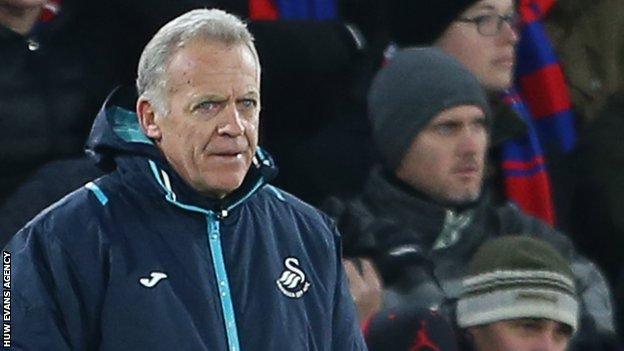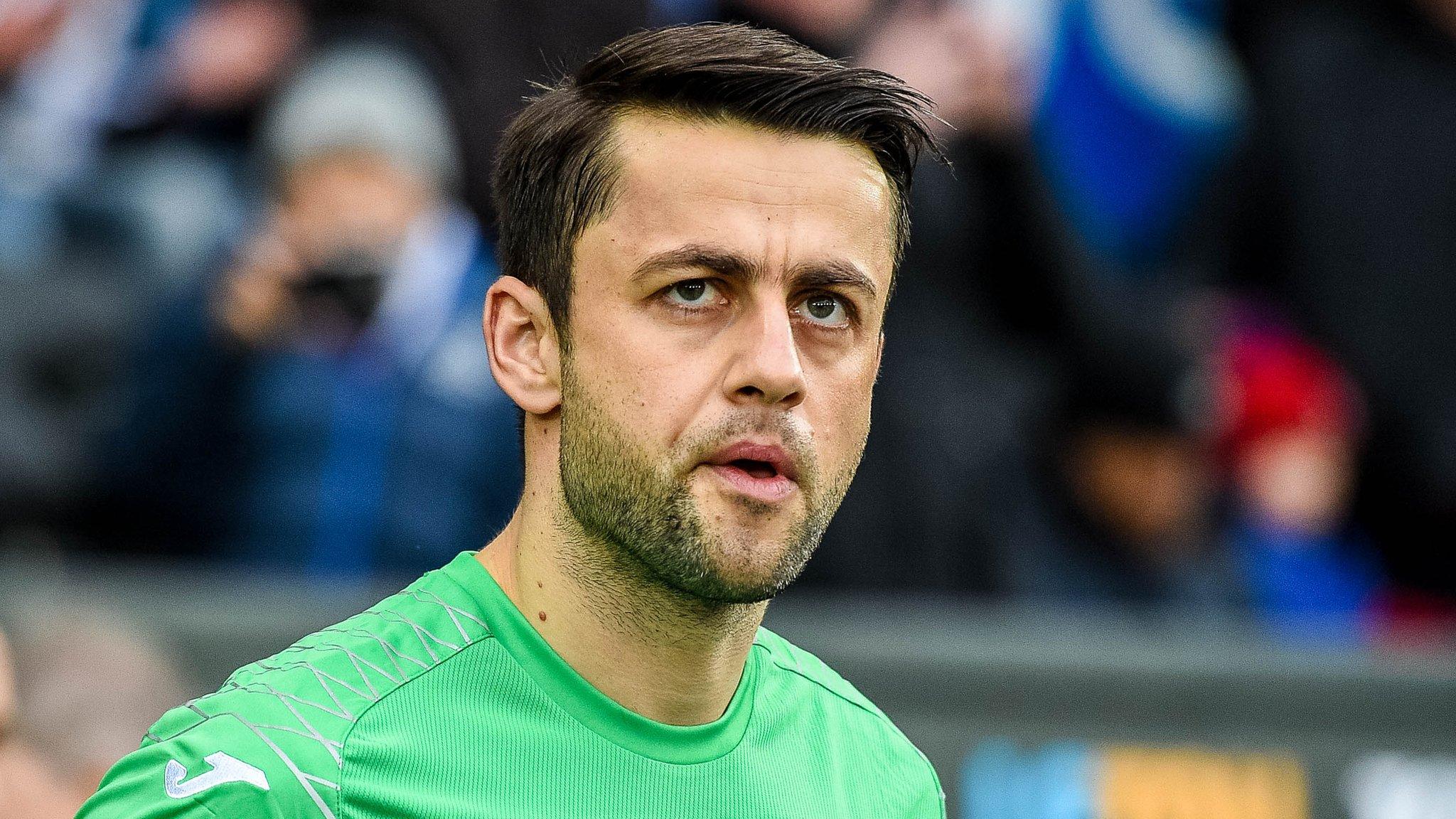Swansea City could lose 10-plus players after relegation - Alan Curtis
- Published
- comments

Former striker Alan Curtis' association with Swansea goes back more than 40 years
Swansea could lose 10 or more players after relegation to the Championship, says club legend Alan Curtis.
Goalkeeper Lukasz Fabianski wants to follow Ki Sung-yueng in leaving, fellow midfielder Leon Britton has retired, and defender and captain Angel Rangel's contract was not renewed.
The Swans are seeking a new boss after Carlos Carvalhal's departure.
Curtis told BBC Wales Sport that the Portuguese's successor has "got to be given time to rebuild again".
The former Wales striker added that rediscovering the 'Swansea Way' - the distinctive, passing style that defined their approach during their rise through the leagues - will be "difficult" under a new manager.
Curtis was responsible for overseeing Swansea's players on loan at other clubs under Carvalhal, having previously played for and and coached the club in an association going back more than 40 years.
"We've been in worse situations than this. People forget that we almost went out of the league," said the 64-year-old.
"So we've survived. Even though we could see it coming in the last couple of years, it just seemed to be all of a sudden that we were relegated and we're still reeling a little bit from the shock of it.
"It's going to be a tough old league next year, we know that."
Can Swans rediscover 'Swansea Way'?
After avoiding relegation from the Football League in 2002-03, Swansea began a rise through the divisions until they reached the Premier League in 2011.
Curtis says the 'Swansea Way' began under former manager Roberto Martinez, who took over in 2007, when the club were in League One.
"I think we'd all agree that Roberto probably started the process but, if you remember, he started it in League One and the process actually took a couple of years," said Curtis.
"You can make mistakes in League One and you wouldn't get punished. As we became better and more refined, people took it on a little bit further each time.
"To actually get that sort of philosophy back again, you obviously need to have the players for it.
"More importantly, you need to have the coach or manager in place who wants to implement that - but that's going to be difficult."
- Published19 May 2018

- Published18 May 2018

- Published16 May 2018
